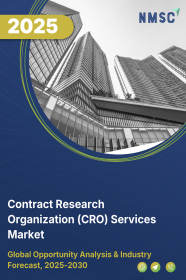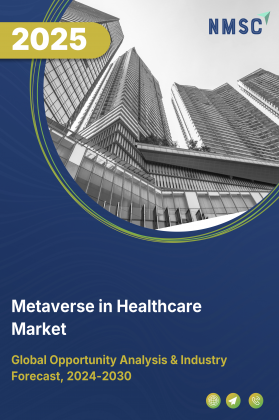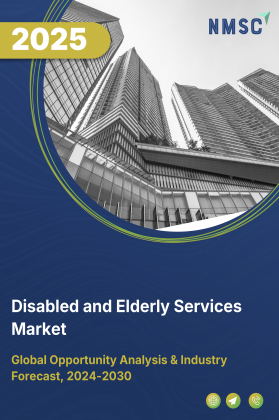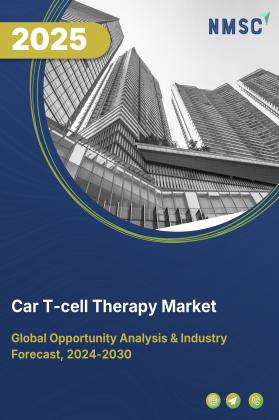
Contract Research Organization (CRO) Services Market by Type (Clinical Research Services, Early Phase Development Services, Laboratory Services and Others), by Therapeutic Area (Oncology, Cardiovascular, Neurology, Immunology, Respiratory, and Others), and by End User (Pharmaceutical & Biotechnology Companies, Medical Device Companies, Academic & Research Organizations, and Others) – Global Opportunity Analysis and Industry Forecast 2025–2030
Contract Research Organization (CRO) Services Industry Overview
The global Contract Research Organization (CRO) Services Market size was valued at USD 77.86 billion in 2024 and is predicted to reach USD 84.92 billion by the end of 2025. The industry is predicted to reach USD 131.17 billion by 2030 with a CAGR of 9.1% from 2025 to 2030.
The increasing investment in pharmaceutical research and development (R&D) is driving significant growth in the market. Pharmaceutical companies are increasingly outsourcing research activities to CROs to reduce costs, streamline development timelines, and mitigate risks. This trend is particularly evident in the development of biologics, personalized medicines, and new therapies, where CROs bring specialized expertise.
Additionally, the demand for faster drug approvals and the rise of decentralized clinical trials (DCTs) are further boosting the CRO services market. However, high operational costs and the need for efficiency in a competitive landscape present challenge for CROs. The integration of artificial intelligence (AI) to enhance clinical trial processes and improve efficiency is opening up new growth opportunities, allowing CROs to provide more value to pharmaceutical clients and streamline operations.
Rising Pharmaceutical R&D Investments Drive Market Growth
The increasing investment in pharmaceutical R&D is a key driver in the Contract research organization (CRO) services market growth. Companies are outsourcing a larger portion of their research activities to CROs to optimize costs, reduce development timelines, and mitigate risk. This shift is particularly noticeable in the development of biologics, personalized medicines, and new therapies, where CROs provide specialized expertise. The expansion of biotech companies, especially in emerging markets, further amplifies the demand for outsourced research services.
Regulatory Pressures for Faster Drug Approvals Fuel Market Growth
As regulatory agencies push for faster drug approvals to address the growing healthcare needs, CROs play a vital role in facilitating this process. CROs assist pharmaceutical companies in meeting regulatory compliance, managing clinical trial logistics, and ensuring timely data reporting. With the rising complexity of clinical trials and increased pressure to bring life-saving drugs to market swiftly, CROs are integral to accelerating the drug development process.
Rising Demand for Decentralized Clinical Trials Drives Market Growth
Decentralized clinical trials (DCTs) have emerged as a transformative trend in the CRO services market. These trials utilize digital tools and remote patient monitoring, allowing for more flexibility and inclusivity in patient recruitment. DCTs are particularly beneficial for patients in rural or underserved regions, which enhances participation and accelerates the trial process. The demand for decentralized trials is expected to rise due to their efficiency and patient-centric approach, creating significant growth opportunities for CROs.
High Operational Costs Hinder Contract Research Organization (CRO) Services Market Growth
Despite the benefits of outsourcing, CROs often face high operational costs related to technology investments, skilled labor, and regulatory compliance. These costs can be particularly burdensome for smaller or mid-sized CROs that may struggle to match the scale and resources of larger competitors. As the market grows, maintaining cost-efficiency while delivering quality services becomes a critical challenge for CROs.
Leveraging AI for Enhanced Efficiency Create Opportunity for Market Growth
AI is increasingly being integrated into clinical trial management to enhance research and development processes, particularly in clinical trials. Machine learning algorithms and AI-driven platforms can optimize patient recruitment, monitor trial progress, and predict outcomes, significantly improving efficiency and reducing costs. By embracing AI technologies, CROs can offer more value to pharmaceutical clients, thus creating new growth opportunities.
For instance, in June 2024, Lokavant introduced Spectrum, an advanced AI solution tailored to assist contract research organizations and sponsors in real-time clinical trial prediction, optimization, and management. By executing thousands of simulations in minutes, spectrum facilitates iterative feasibility assessments and empowers researchers to make data-driven decisions throughout the study. This development underscores the potential of AI technologies to deliver enhanced value to pharmaceutical clients, fostering new growth opportunities within the Contract research organization (CRO) services sector.
Market Segmentation and Scope of Study
The contract research organization (CRO) services market report is segmented on the basis of type, therapeutic area, end user, and region. On the basis of type, the market is categorized into clinical research services, early phase development services, laboratory services, consulting services, and data management services. Clinical research services are further segmented by phase into Phase I, Phase II, Phase III, and Phase IV. By study design into interventional and real-world evidence (RWE). Early phase development services are further divided into chemistry, manufacturing, and controls (CMC) services, preclinical services, and discovery studies.
Preclinical services are again segmented into pharmacokinetics/pharmacodynamics services, toxicology testing services, and other preclinical services. Laboratory services are further segmented into analytical testing services and bioanalytical testing services. Analytical testing services are further divided into physical characterization services, raw material testing services, batch release testing services, stability testing services, and other analytical testing services.
On the basis of therapeutic area, the market is classified into oncology, breast cancer, lung cancer, colorectal cancer, prostate cancer, and other cancers, infectious diseases, cardiovascular system (CVS) disorders, neurology, vaccines, metabolic disorders/endocrinology, immunological disorders, psychiatry, respiratory disorders, dermatology, ophthalmology, gastrointestinal diseases, genitourinary and women’s health, hematology, and other therapeutic areas. On the basis of end user, the market is grouped into pharmaceutical and biotechnological companies, medical device companies, academic and research institutes, and others. Geographic breakdown and analysis of each of the aforesaid segments includes regions comprising North America, Europe, Asia-Pacific, and RoW.
Geographical Analysis
North America is at the forefront of the contract research organization (CRO) services market share, driven by the rapid adoption of advanced technologies and a well-established pharmaceutical and biotechnology ecosystem. The region’s market size continues to expand, largely fueled by increasing demand for clinical trials, particularly in the United States. The U.S. boasts a high concentration of global pharmaceutical companies and research institutions, which are leveraging CROs for their expertise in managing complex clinical trials and regulatory processes.
Furthermore, North America’s strong emphasis on AI-driven advancements and regulatory support contributes to its dominant market share, with CROs such as Covance and Labcorp setting the stage for future growth. The region's CRO market trends highlight its potential for further expansion, with innovations in personalized medicine and patient-centric trial designs poised to drive the sector’s evolution.
Europe is another significant player in the global contract research organization (CRO) services market share, with the region’s regulatory framework providing a strong foundation for the growth of clinical trials. The European Union’s support for innovation, particularly in biotech and pharmaceutical sectors, is contributing to the rapid adoption of Pharmaceutical outsourcing services. In countries like Germany, the UK, and France, the market is seeing increased investments in clinical trial management systems and patient recruitment technologies.
Additionally, the region benefits from collaborative opportunities through multinational clinical trials, further expanding the market’s potential. Europe’s Contract research organization (CRO) services are also seeing a shift towards decentralized trials, responding to the growing demand for remote patient monitoring and reduced operational costs. This trend, combined with the focus on environmental sustainability, positions Europe for steady growth within the CRO sector. A notable example is the recent launch of ClinOne, a next-generation decentralized clinical trial platform by ClinOne in 2024. The platform integrates patient data, remote monitoring, and clinical trial management in a single interface, improving trial efficiency and patient engagement. This launch demonstrates Europe's proactive approach in embracing new technologies and strategies to meet the evolving demands of the market.
The Asia-Pacific region is experiencing substantial growth in the market, owing to its diverse healthcare landscape and rapid technological adoption. Countries such as China and India are becoming increasingly prominent in the global clinical trials space due to their vast patient populations, lower operational costs, and expanding healthcare infrastructure. The rise in clinical trials for novel therapies, particularly in oncology and immunology, is boosting the demand for Contract research organization (CRO) services. Moreover, the Asian market is benefiting from rising investments in R&D, as well as the growing prevalence of non-communicable diseases, which are driving demand for more targeted clinical trials. The region is also emerging as a hub for AI and machine learning technologies in clinical research, offering new opportunities for CROs to streamline trial processes and improve efficiency. With its expanding market size and increasing role in global clinical research, Asia-Pacific is poised for continued growth in the contract research organization (CRO) services sector.
In the Rest of the World (RoW) region, the market is witnessing significant developments, especially in Latin America, the Middle East, and Africa. These emerging markets are gradually increasing their share in global clinical research, driven by factors such as rising healthcare investments, improving regulatory frameworks, and growing demand for healthcare innovations. Latin America, in particular, has become an attractive destination for clinical trials due to its competitive cost structures and diverse patient populations.
In the Middle East and Africa, countries are investing heavily in infrastructure and research capabilities, positioning themselves as emerging players in the market. Despite facing challenges such as regulatory complexities and geopolitical instability, these regions offer promising growth potential, especially as they embrace advanced technologies and expand their clinical trial offerings. With expanding market trends, the RoW region is set to become a critical contributor to the global industry.
Strategic Approaches in the Global Contract Research Organization (CRO) services Industry
Key players in the global contract research organization (CRO) services industry are increasingly adopting strategies that integrate cutting-edge technologies to streamline clinical trial processes and enhance overall efficiency. A notable development is the widespread incorporation of artificial intelligence (AI) and machine learning (ML) to optimize patient recruitment, monitor trial progress, and predict outcomes. Companies such as Covance and Parexel are leading the charge with AI-driven platforms that not only reduce operational costs but also improve the quality and speed of clinical trials.
Additionally, CROs are focusing on expanding their service offerings, with several firms enhancing their capabilities in specialized areas like decentralized trials and regulatory consulting to meet evolving industry demands. In a recent development, Charles River Laboratories announced the launch of its AI-powered drug discovery platform, Logica, in collaboration with Valo Health in March 2024, integrating predictive modeling and translational research to accelerate preclinical development and enhance decision-making for clients.
However, despite the promising outlook, key challenges persist, including the rising complexity of clinical trials, regulatory hurdles, and the pressure to deliver cost-effective solutions. Furthermore, with the global market size for Contract research organization (CRO) services growing steadily, companies must address increasing competition from both established players and emerging local firms, especially in cost-sensitive regions like Asia-Pacific and Latin America. Opportunities lie in the growing demand for personalized medicine, the rising importance of real-world data in drug development, and the shift toward patient-centric trial models. By capitalizing on these trends and overcoming operational challenges, CROs are positioned to drive growth and expand their market share in the coming years.
Key Benefits
-
The report provides quantitative analysis and estimations of the CRO service market from 2025 to 2030, which assists in identifying the prevailing market opportunities.
-
The study comprises a deep-dive analysis of the CRO service market including the current and future trends to depict prevalent investment pockets in the market.
-
Information related to key drivers, restraints, and opportunities and their impact on the CRO service market is provided in the report.
-
Competitive analysis of the players, along with their market share is provided in the report.
-
SWOT analysis and Porters Five Forces model is elaborated in the study.
-
Value chain analysis in the market study provides a clear picture of roles of stakeholders.
Contract Research Organization (CRO) Services Market Key Segments
By Type
-
Clinical Research Services
-
Phase
-
Phase I
-
Phase II
-
Phase III
-
Phase IV
-
-
Study Design
-
Interventional
-
Real World Evidence (RWE)
-
-
-
Early Phase Development Services
-
Chemistry, Manufacturing and Controls Services
-
Preclinical Services
-
Pharmacokinetics/Pharmacodynamics Services
-
Toxicology Testing Services
-
Other Preclinical Services
-
-
Discovery Studies
-
-
Laboratory Services
-
Analytical Testing Services
-
Physical Characterization Services
-
Raw Material Testing Services
-
Batch Release Testing Services
-
Stability Testing Services
-
Other Analytical Testing Services
-
-
Bioanalytical Testing Services
-
-
Consulting Services
-
Data Management Services
By Therapeutic Area
-
Oncology
-
Breast Cancer
-
Lung Cancer
-
Colorectal Cancer
-
Prostate Cancer
-
Other Cancer
-
Infectious Diseases
-
CVS Disorders
-
Neurology
-
Vaccines
-
Metabolic Disorders/Endocrinology
-
Immunological Disorders
-
Psychiatry
-
Respiratory Disorders
-
Dermatology
-
Ophthalmology
-
Gastrointestinal Diseases
-
Genitourinary & Women’s Health
-
Hematology
-
Other Therapeutic Areas
By End User
-
Pharmaceutical & Biotechnological Companies
-
Medical Device Companies
-
Academic & Research Institutes
-
Others
By Region
-
North America
-
The U.S.
-
Canada
-
Mexico
-
-
Europe
-
The UK
-
Germany
-
France
-
Italy
-
Spain
-
Denmark
-
Netherlands
-
Finland
-
Sweden
-
Norway
-
Russia
-
Rest of Europe
-
-
Asia-Pacific
-
China
-
Japan
-
India
-
South Korea
-
Australia
-
Indonesia
-
Singapore
-
Taiwan
-
Thailand
-
Rest of Asia-Pacific
-
-
Rest of the World
-
Latin America
-
Middle East
-
Africa
-
Key Players
-
IQVIA Inc
-
Thermo Fisher Scientific Inc.
-
Labcorp
-
WuXi AppTec
-
Syneos Health
-
Charles River Laboratories.
-
Pharmaron
-
Eurofins Scientific
-
Worldwide Clinical Trials
-
Fortrea Inc
-
Navitas Life Sciences
-
Parexel
-
ICON PLC
-
Vipragen
-
SGS SA
REPORT SCOPE AND SEGMENTATION:
|
Parameters |
Details |
|
Market Size in 2024 |
USD 77.86 Billion |
|
Revenue Forecast in 2030 |
USD 131.17 Billion |
|
Growth Rate |
CAGR of 9.1% from 2025-2030 |
|
Analysis Period |
2024–2030 |
|
Base Year Considered |
2024 |
|
Forecast Period |
2025–2030 |
|
Market Size Estimation |
Billion (USD) |
|
Growth Factors |
|
|
Countries Covered |
28 |
|
Companies Profiled |
15 |
|
Market Share |
Available for 10 companies |
|
Customization Scope |
Free customization (equivalent to up to 80 working hours of analysts) after purchase. Addition or alteration to country, regional, and segment scope. |
|
Pricing and Purchase Options |
Avail customized purchase options to meet your exact research needs. |

















 Speak to Our Analyst
Speak to Our Analyst

























